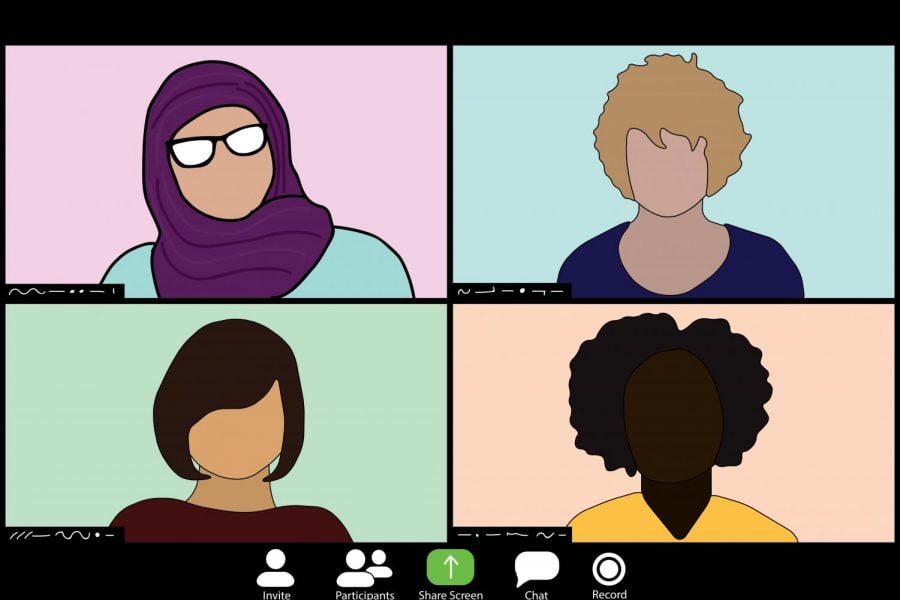Student theater boards adjust to remote instruction
Petitioning for StuCo boards has moved online, but students are still maintaining a sense of community remotely.
May 18, 2020
Members of Northwestern student theater boards didn’t foresee a pandemic mandating a campus closure for the entirety of Spring Quarter. However, Communication junior Julia Mann, the executive director of theatre board Sit & Spin Productions, said the board was ready to step up to the challenge.
“Sit & Spin specifically does a lot of experimental and immersive work,” Mann said. “Our entire thing is boundary-pushing, risky theater. Not having a space is not really as much of a restriction for us… we don’t really know what’s going to happen, but we’re prepared to figure something out.”
The Student Theatre Coalition is made up of nine theater groups and two dance groups, which all have their own executive boards and produce performances throughout the academic year. Although the shift to remote instruction is challenging for theater, which traditionally relies on in-person collaboration, StuCo has been adjusting to remote petitioning and meetings.
Spring is the busiest time for StuCo, according to SESP junior Lydia Spettel, the executive director of Arts Alliance. During Spring Quarter, StuCo boards bring on producers, directors and other new members — people who aren’t already on theater boards can petition to join one. However, this entire process had to be shifted to Zoom.
Spettel said normally, theater boards would rent out a couple classrooms to hold in-person meetings. Now, it’s all being done online, but she said she’s glad she can still interact with people.
Petitioning is very competitive, as there are a limited amount of spots on StuCo boards, Mann said. Despite this, there have been far more people interested in joining than Mann said she expected.
“We’ve seen a lot of really well-thought-out ideas in ways that we haven’t necessarily in the past, just because I feel like people are given a lot more free time right now and are like, ‘I don’t know what to do. Let’s get creative,’ which is cool,” Mann said.
Communication sophomore Simran Deokule, the development director of Lipstick Theatre, said her administrative duties haven’t changed much on Zoom. But as a performer, the shift to remote learning has been particularly difficult, she said.
Deokule was a cast member in this year’s Waa-Mu show, “State of the Art,” which was performed remotely. The cast recorded their parts separately and then combined them for the final performance, she said.
“Definitely some of that camaraderie and emotion that comes out of being in the room with all these people and working towards creating art wasn’t there,” Deokule said.
Board members are glad they can still maintain a sense of community even while remote. But there are still some issues with Zoom, like delays or poor Internet connection. Deokule said that looking at a computer screen for a long time has started to give her headaches.
However, Spettel said she thought the biggest consequence of remote instruction has been the cancellations of various theater productions. Many StuCo boards have moved their spring productions, but it’s still unclear if Northwestern will resume in-person classes in the fall. There have been online productions, like Waa-Mu, but there really isn’t a replacement for performing face-to-face, she said.
“Storytelling in general is just so powerful,” Spettel said. “I think it’s one of the best methods of communication to make change and bring people together and start conversations. And you know, we can’t really do any of that. I mean, obviously still some stuff going on (…) but it’s not the same experience as cramming into Shanley together and seeing a show live.”
Email: [email protected]
Twitter: @neyachalam
Related Stories:












